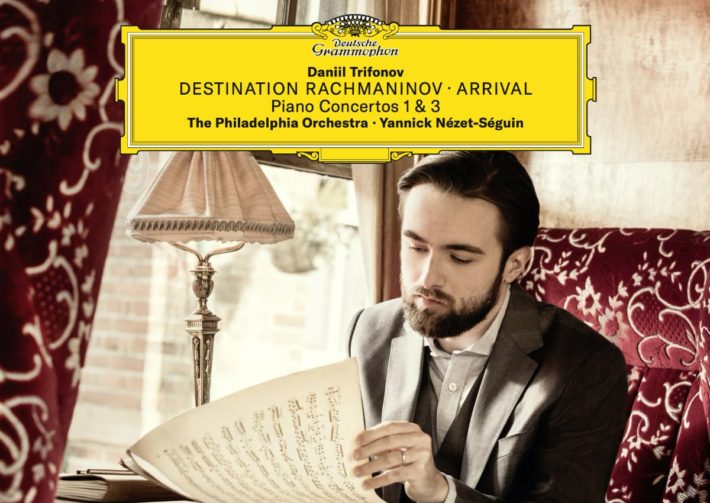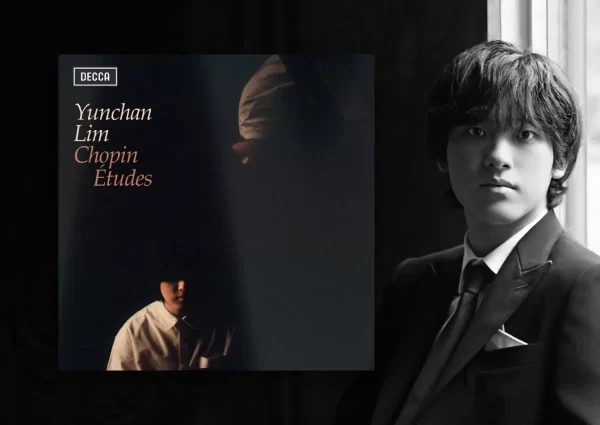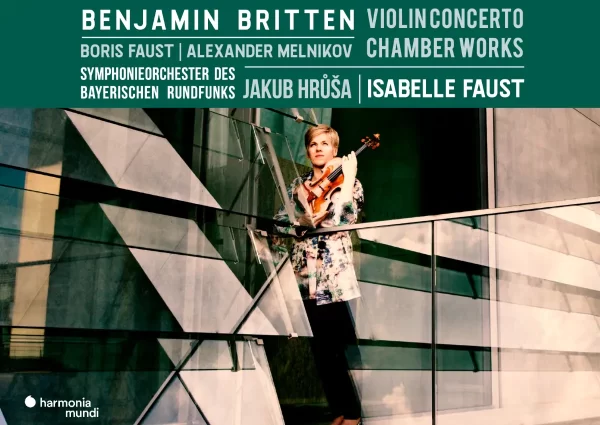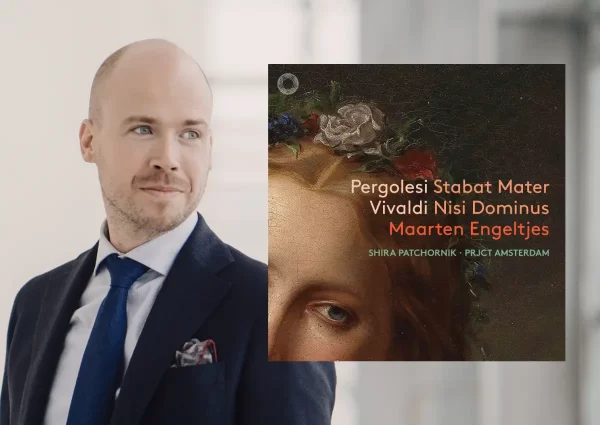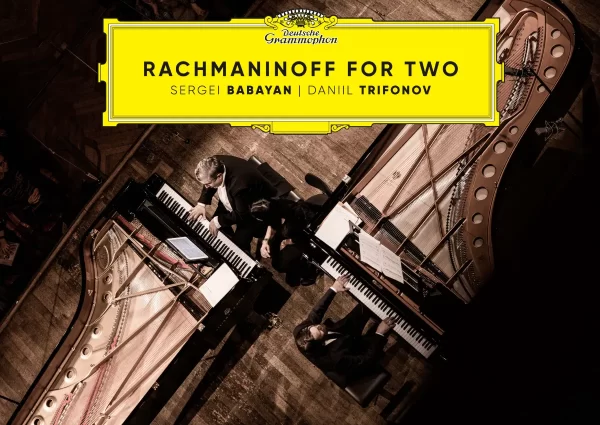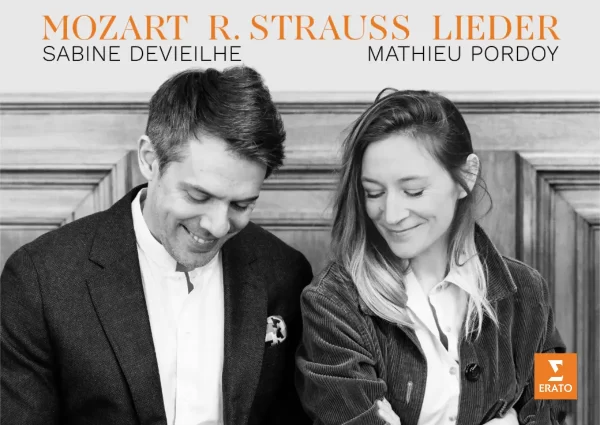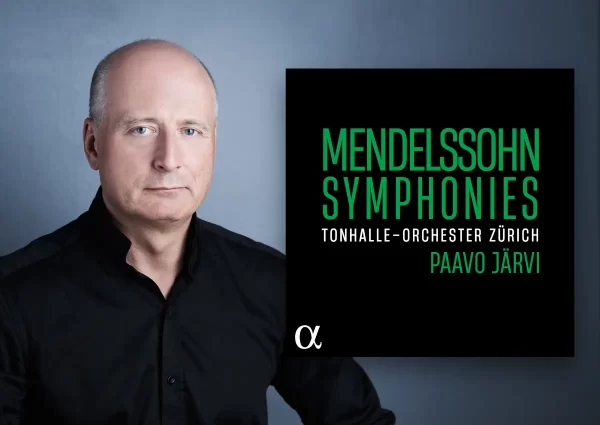With this album, Daniil Trifonov’s completes his exploration of the complete Rachmaninov works for piano and orchestra, accompanied by the Philadelphia Orchestra under Yannick Nézet-Séguin. The previous two recordings garnered considerable acclaim, so this new release is highly anticipated.
Each of the previous volumes has included works for solo piano and this recording opens with Trifonov’s own transcription of music from Rachmaninov’s choral-orchestral masterpiece, “The Bells”. In the liner notes, Trifonov states that “The work’s fluid energy is highly pianistic, even if it is challenging for the performer to sustain a legato line and soft dynamic range through so much elaborate passagework.” Any such challenges are fully mastered in Trifonov’s performance, and his idiomatic transcription would convince anyone that the work was originally written for the piano. The album also includes a lovely transcription by the pianist of the Vocalise.
The Philadelphia horn section launches the first concerto with writing that is surely meant to evoke the fate motif of Tchaikovsky’s fourth symphony, answered by a flurry of downwardly cascading double octaves and chords that reveal Rachmaninov’s love for Grieg’s piano concerto. The first movement is built on the idea of quickly shifting moods – one moment extroverted virtuoso bravura passagework, the next ruminative harmonic melancholic wanderings. Orchestra and soloist are fully attuned to every mercurial change, Nézet-Séguin brings out a wealth of orchestral detail that allows us to revel in Rachmaninov’s engagingly complex accompaniment.
Trifonov and Nezet-Seguin bring improvisatory freedom and touching delicacy to the second movement: listen to how gently the bassoon enters at 2’56”, and the wonderful give and take between piano and orchestra throughout the movement, creating a captivating atmosphere of delicate calm that stays with the listener long after the recording is over. The third movement, in sonata-rondo form, is another opportunity for flashy brilliance, which Trifonov and the Philadelphians clearly relish. Certainly, we hear why Rachmaninov himself thought so highly of this concerto and was so often frustrated when concert promoters did not share that enthusiasm.
In the illuminating booklet, Trifonov speaks of the substantial undertaking the composer took upon himself with the Third Concerto, and even describes the piece in religious terms. While Trifonov clearly savors the bravura writing, he also enjoys the many moments of introspection. This is especially apparent in the first movement cadenza (Track 6, 10’05”), played with an organic, improvisatory freedom that does indeed make it seem like we are listening in on an inner conversation with the Creator. Trifonov, as Ashkenazy in his famous version with Previn, chose the less brilliant “Ossia” cadenza rather than the flashier alternative.
The third movement of the concerto is another highlight. In lesser hands, the music can be flashy and loud, moving from one climax to the next, but Trifonov and Nézet-Séguin are clearly focused on allowing the music to continually grow and expand into the overwhelming hymn of praise unleashed in the coda. Even listening at home, it is difficult to resist leaping to your feet to shout ‘bravo’ at your speakers.
In short, there is so much more to these performances than Trifonov’s phenomenal technique, which of course enables him to execute even the most difficult passages with unerring accuracy and tonal beauty. The greater success of this recording, as well as the other two recordings in the series, is how completely Trifonov inhabits the complex and profound “gestalt’ of this music and its composer. After listening to a Trifonov performance it is hard to believe the music can be played any other way.
As in the previous album of this cycle, one of the Concertos is a live recording, in this case, the Third Concerto. Both recordings are comparable to the previous volumes, with enough space and a good balance between soloist and orchestra, even if the sound becomes a little pressed in the louder passages.
There have been few benchmark cycles over the years; Ashkenazy / Previn, Lugansky / Oramo and Hough / Litton are all rewarding, adding to the wonderful cycle by the composer himself, interestingly with the same orchestra we have here. The formidable playing of Hough and the Dallas players, along with Hough’s uniquely compelling interpretations, remain unsurpassed. But this new cycle, which includes additional solo repertoire, first-rate notes, upmarket presentation, and a good digital recording, is certainly equal to previous renditions, and in some ways preferable. Along with the other reference recordings, lovers of Rachmaninov’s Piano Concertos will surely want to add this to their collection.

“Destination Rachmaninov – Arrival”
Rachmaninov – Piano Concerto No. 1 and 3
Daniil Trifonov – Piano
The Philadelphia Orchestra
Yannick Nézet-Séguin – Conductor
Deutsche Grammophon, CD 0289 483 6617 0
Albums Mentioned In This Review
Follow Us and Comment:
Get our periodic classical music newsletter with our recent reviews, news and beginners guides.
We respect your privacy.

